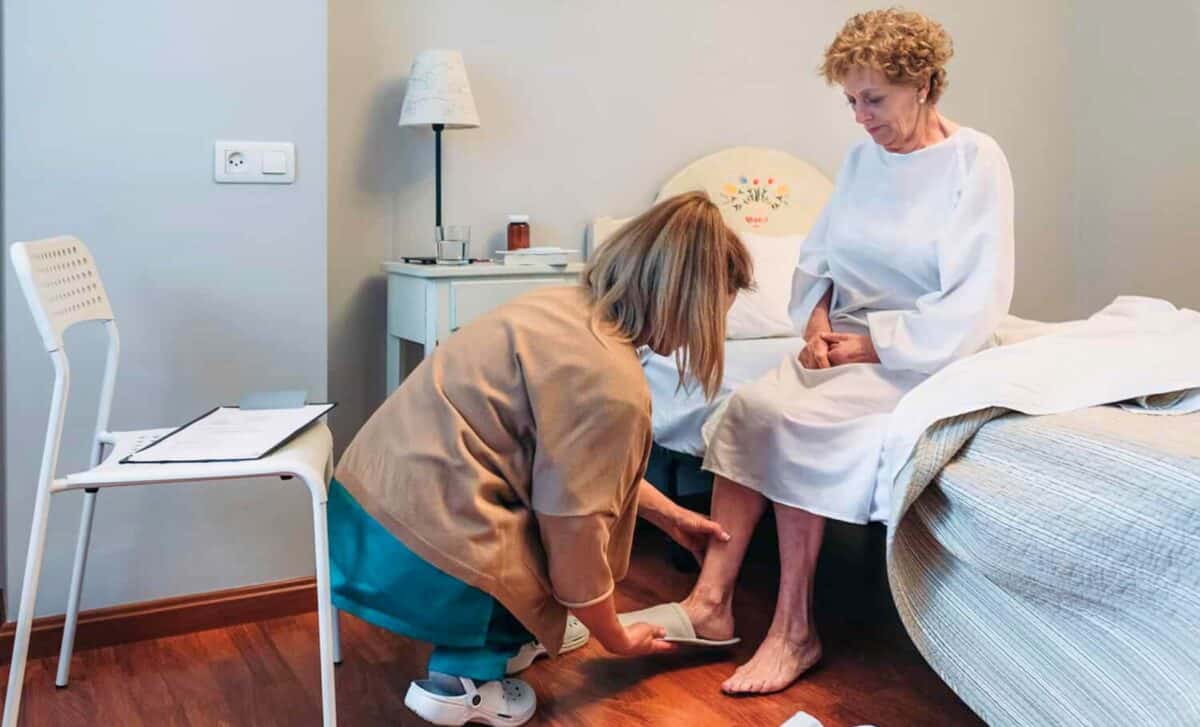The Department for Work and Pensions (DWP) has been urged to increase the support it provides to carers following criticism that current payments are insufficient to cover costs.
DWP’s Carer’s Allowance Fails to Meet Needs: Study Highlights Financial Strain on Unpaid Caregivers
There are estimated to be 5.7 million persons in the UK who work unpaid care tasks for 20 hours or more each week, with 1.4 million receiving Carer’s Allowance from the DWP.
TakingCare’s study, ‘Unpaid and under pressure: are Brits trapped caring for elderly parents?’ revealed that 82% felt the existing Carer’s Allowance of £81.90 per week is insufficient. The DWP benefit is only available to those who work more than 35 hours per week in unpaid care and pays £2.19 per hour, which is five times less than the minimum wage.
Alternatively, those on Universal Credit can receive a separate Carer Element, which presently amounts to £198.31 per month.
When asked how much money they would actually need if they had to leave their jobs to care for an elderly relative, 80% of respondents polled indicated they’d require more than £100 per week, and 50% said more than £200.
In the current economic context, one in every five persons believes they will require £400 per week to care for an aging parent and meet their bills.
According to the survey, the rising expense of care homes influences people’s decision to take on the obligations themselves, with 32% stating that they or an older family members would be unable to cover a typical four-year stay in a care home.
Carer’s UK data supports these findings, revealing that one in every seven carers in the UK juggles job and care duties, with many also caring for their own families and children in addition to these other commitments.
Carer’s UK also discovered that 600 people leave work every day to care for someone in need; between 2010 to 2020, nearly two million persons in paid employment become unpaid carers.
Expert Insights: Addressing the Financial Strain Faced by Unpaid Carers Amidst Rising Costs
Lauren Frake, elderly care expert at Taking Care Personal Alarms for Seniors, stated: “Our report shows some of the harsh realities for unpaid carers in our country, with many struggling to cope in the current financial landscape. We have found this is largely due to a lack of wider support available to them; they are simply slipping through the cracks.
“Given the current financial climate, it’s crucial for unpaid carers to understand what financial support is available to them, particularly in light of the cost of living crisis and rising inflation. One thing unpaid carers can claim for is Carer’s Credit, a National Insurance credit that helps bridge some of the gaps in a carer’s National Insurance record and helps towards your State Pension.
“Claimants must care for someone for at least 20 hours per week, with the credit allowing them to maintain caring responsibilities and still contribute to their State Pension, which is based on NI contributions. Alongside this, carers should look to their local authority for further support.
“Many councils will have their own list of registered organisations, charities and support groups that can help vulnerable or elderly people in the community. For those caring for elderly friends or relatives, it’s advisable to get at-home support through a needs assessment from your local authority which will help open the door to further support.”
While the Carer’s Leave Act went into effect on April 6, 2024, allowing employees to take unpaid leave to care for a dependent (including an old person), Ms Frake believes the new legislation does not go far enough.
She said: “This act will undoubtedly provide employees with the reassurance that they have the right to take time off from work to care for their elderly relatives. However, there is still a large gap to fill in providing support to those balancing full-time employment and family life with the responsibility of caring for elderly family members, with many of these carers being women.”
According to the Equality Act of 2010, employees are entitled to unpaid leave in order to provide or arrange care for a dependant who has an illness or injury of any kind that will require care for more than three months, a disability, or care needs related to old age. Anybody who depends on the dependent for care is considered a dependant; they do not need to be family members.
Within a 12-month period, employees are entitled to one week of leave, which is determined by the average amount of time worked over seven days. An individual can take three days of carer’s leave, for example, if they work three days a week on average.









